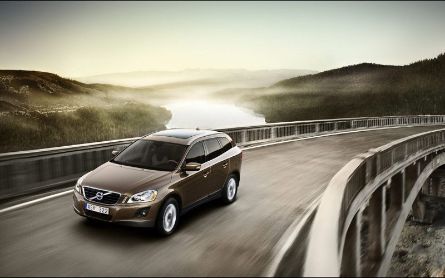Click on each of the topics below to learn more and find useful resources.
driving in spaiN
This article was last updated in February 2024

GETTING STARTED
Help At Hand Spain can help guide you every step of the way taking the stress and planning out of your move. Get in touch by completing our enquiry form.
Help At Hand Spain can help with the following:
- Apply for a EU or UK Driving Licence Exchange
- Apply for Other Non-EU Driving Licence for eligible countries
- Clear and transparent pricing before you commit
- Overcome the language barrier
- Leverage our experience and patience to overcome the bureaucracy
- We will guide you through every step of the process
- You can leverage our knowledge and network of trusted partners
- We understand how daunting things can be, we are here to make it easier
- Share sensitive documents in confidence and securely using a client specific password protected folder
UK and Northern ireland driving licences
- Help At Spain Services: We offer a service to exchange your driving licence.The exchange will involve obtaining the required Medical certificate and attending the DGT appointment.
eu/EFTA driving licences
EU/EFTA Driving Licences: Your driving licence will be valid in Spain as long as it is current and exchanging it is voluntary, however if you plan to live permanently in Spain you may wish to change it now.
There are two key exceptions, if the driving licence has an indefinite period of validity (no expiry date), or is valid more than 15 years for group 1 (AM, A1, A2, A, B and BE), or more than five years for group 2 (C1, C1E, C, CE, D1, D1E, D and DE), in this case you must renew it two years after establishing your ordinary residence in Spain. If your European licence expires, you must renew it in order to continue driving, the renewal involves exchanging your licence for a Spanish one.
- Help At Spain Services: We offer a service to exchange your driving licence. The exchange will involve obtaining the required Medical certificate and attending the DGT appointment.
other non-eu driving licences
Other Driving Licences: You usually need to exchange or replace your license within six months after you establish your residency (the start date on your TIE card or date you arrived in Spain). You must check on the rules with your driving licence issuing authority, for many countries you will be required to carry an International Driving Permit (IDP), which has been translated. Around 25 countries have licence exchange agreements which enable a simple exchange, if your country does not have an agreement (such as the United States, Canada, Australia) you will need to take a driving theory and practical test in Spain.
- Help At Spain Services: We offer a service to exchange your driving licence if the country that issued your licence has an agreement with Spain. The exchange will involve obtaining the required Medical certificate (if required) and attending the DGT appointment.
- Countries with an agreement for exchange: Switzerland, Andorra, Korea, Japan, Argentina, Colombia, Ecuador, Uruguay, Peru, Morocco, Chile, Algeria, Dominican Republic, Paraguay, Bolivia, Philippines, Guatemala, Brazil, Serbia, El Salvador, Turkey, Ukraine, Tunisia, North Macedonia, Nicaragua, Monaco, Panama, Costa Rica, New Zealand.
when DO I NEED TO EXCHANGE MY DRIVING LICENCE IN SPAIN?
You must do this within timeframe stated depending on the type of licence - UK/Ireland and EU, and where eligible for exchange Non-EU licenses (see above). You can start once from the date in which you obtained your residency (the date of entry into Spain) however you must have a permanent address and have obtained your Padron (Town Hall Registration).
At the start of this procedure, your original licence is withdrawn and you will be issued with a provisional Spanish licence equivalent to the one which you held in your country. You will receive your definitive licence in approximately one to two months.
If you don't obtain the a Spanish Driving Licence if required, if you are stopped by the Spanish National Police or the Guardia Civil, they may levy fines on the spot and issue a receipt for payment. This ensures that foreigners pay their fines while still in Spain. It is also possible that any motor vehicle insurance you have for driving may also be invalid.
frequently asked questionS - DRIVING LICENCE
- Vehicle Classes:In general, if the licence to be exchanged only includes authorisation to drive type A and B vehicles, motorcycles, cars and light vehicles, it will not be necessary to take any exam. Licences that include authorisations to drive type C and D vehicles, trucks and buses, usually require additional testing.
- Minimum Ages: The law in Spain establishes minimum ages for driving in Spain depending on the type/category of vehicle.
- Licence Expiry:When you exchange your licence the expiry dates should remain the same. It's important you pay attention to these to ensure you renew your licence at the appropriate time.
- Driving Offenses:Spain operates a points-based license system. Drivers generally start with 12 points, which are deducted if the holder commits driving offences. If you reach zero points, you will usually lose your license.
frequently asked question - MEDICAL CERTIFICATE
The medical certificate is essential for the driving licence exchange/application process. It ensures that the licence holder meet the necessary health and physical requirements for driving.
The test, recognized by the Dirección General de Tráfico (DGT), includes several assessments:
- Eye test: To evaluate your vision.
- Hearing test: To assess your auditory capabilities.
- Tests related to: Reflexes, Power of prediction, Concentration.
If the driving licence exchange is obligatory then a medical certificate will be required.
hiring or leasing a car in spain
Hire a car in Spain: If you are just arriving in Spain, or you don't plan to drive often, it's likely that you may just rent a car when required.
Leasing a car in Spain: There a number of companies that provide leasing services to foreigners in Spain, leasing is typically cheaper that purchasing because you are only paying for the vehicles depreciation over the term of the agreement. However you don't own the car at the end of the lease and there may be mileage or other restrictions to consider.
BUYING A new or SECOND-HAND CAR IN SPAIN
When you buy a car you only need to prove your NIE number, you don't need to be a resident in Spain so you can use the White NIE Certificate if you have one.
If you are from an EU country you will need your Green EU Residency card. If you are from a Non-EU country the receipt from the Police Station after your first TIE appointment should be sufficient, however, some sellers only accept the physical TIE Residency Card.
Buying a new car is subject to taxes, including the registration tax (up to 12%) and VAT (IVA) at 16%. These costs should be factored into your budget when considering the overall price of the car.
There is a significant second-hand car market in Spain however you may consider that the prices can be higher than countries like the United Kingdom and Germany. This is partly due to the lack of a fleet vehicle market in Spain. Spaniards often keep their cars for a long time, leading to a smaller supply of used cars. The hot climate also helps, as there’s less corrosion from wind and rain, resulting in cars lasting longer and being in better condition. This does mean the mileage for second hand cars can be higher than you may be expecting. It is recommended to do your research and buy you may prefer to buy from a reputable dealer rather than dealing with the additional complexity of buying from a private seller. As a rough guide, a five-year-old car might cost around half of its original showroom price.
importing YOUR own CAR TO SPAIN FROM ANOTHER COUNTRY
It is possible to import your car from another country, however you do need to consider you may need to make technical changes to the car to ensure it's considered legal to drive (i.e. Changing the lights). The car will also be assessed for import tax which will need to be paid before you are given the registration.
- Customs Duty and VAT: All vehicles imported into Spain from the UK may be subject to Customs Duty at 10% of the vehicle’s value. Additionally, you must pay 21% VAT (known as IVA in Spain) on the value of the car.
- Processing Fees:The cost of processing a vehicle through Customs is approximately €250.
- Re-Registering and Getting Spanish License Plates: Officially, you have 60 days to re-register your car onto Spanish license plates. Re-registering your car in Spain helps avoid stress and potential fines. Spanish police frequently conduct roadblocks and check documentation, so having Spanish plates can save you trouble.
Currently, you can only keep a foreign-registered vehicle in Spain for up to six months. After this point, you are obliged to register the vehicle and pay car taxes. However, if you intend to apply for residency, you need to register with the traffic department within 30 days of your arrival.
You may wish to sell your car and buy a Spanish one once you’re in Spain to avoid the hassle of re-registration.
your spanish licence and driving outside of spain
if you plan to driveoutside the European Union, the European Economic Area (Norway, Iceland and Liechtenstein) or countries with which there is a bilateral treaty on traffic and transport, it is unlikely that you will need to obtain an International Driving Permit (IDP).
If you are planning to drive in a Non-EU country you should check if the International Driving Permit (IDP) is required, and this may need to be translated.
If you still have a vehicle and/or car insurance from the country you lived in prior to relocating to Spain, it's really important you check with the insurer to see if you are still eligible to be covered, or if there is a change in your policy.
